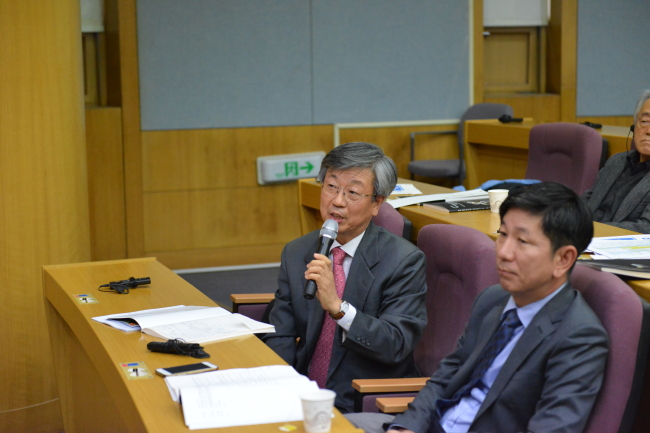
The Plant Molecular Breeding Center of Seoul National University, led by professor Koh Hee-Jong, has claimed the world’s first selective gene editing technique that produces plants that are not classified as a GMO.
The team has applied for a patent for its latest technology, which uses RNA to modify target genes through CRISPR-Cas9, a gene editing technique, the center said.
According to Science Daily, CRISPR is short for clustered, regularly interspaced, short palindromic repeats. They are regular patterns in DNA sequences that can be edited. Cas9 is a type of modified protein that can cut out DNA sequences like a pair of scissors. CRISPR-Cas9 is used to remove problematic sequences, the center explained.
The team believes that the self-developed technique will accelerate progress in the plant biotechnology industry, by reducing the large sums of money spent on GMO safety testing.
“Our latest technology does not inject DNA or use vectors. So plants cultivated using our technique are not (classed as) GMOs,” explained Koh.
The government-funded project has already made significant developments. The team, for example, developed the world’s first anthracnose-resistant chili. The chili plant is relatively free from certain diseases with symptoms like leaf spots.
“Big multinational companies have all eyes set on developing genome editing techniques that will secure them a piece of the growing plant biotechnology sector. I am confident that our new method has placed existing biotechnology on another level. (When using our method) the CRISPR-Cas9 only modifies selective genes with the help of guided-RNA,” professor Koh said.
“The US approves plants made by such technology as non-GMOs. But the Korean government remains undecided on the matter, which is a setback for further advancement.”
By Kim Bo-gyung (lisakim425@heraldcorp.com)
-
Articles by Korea Herald











![[Today’s K-pop] BTS pop-up event to come to Seoul](http://res.heraldm.com/phpwas/restmb_idxmake.php?idx=644&simg=/content/image/2024/04/17/20240417050734_0.jpg&u=)






![[KH Explains] Hyundai's full hybrid edge to pay off amid slow transition to pure EVs](http://res.heraldm.com/phpwas/restmb_idxmake.php?idx=652&simg=/content/image/2024/04/18/20240418050645_0.jpg&u=20240419100350)

